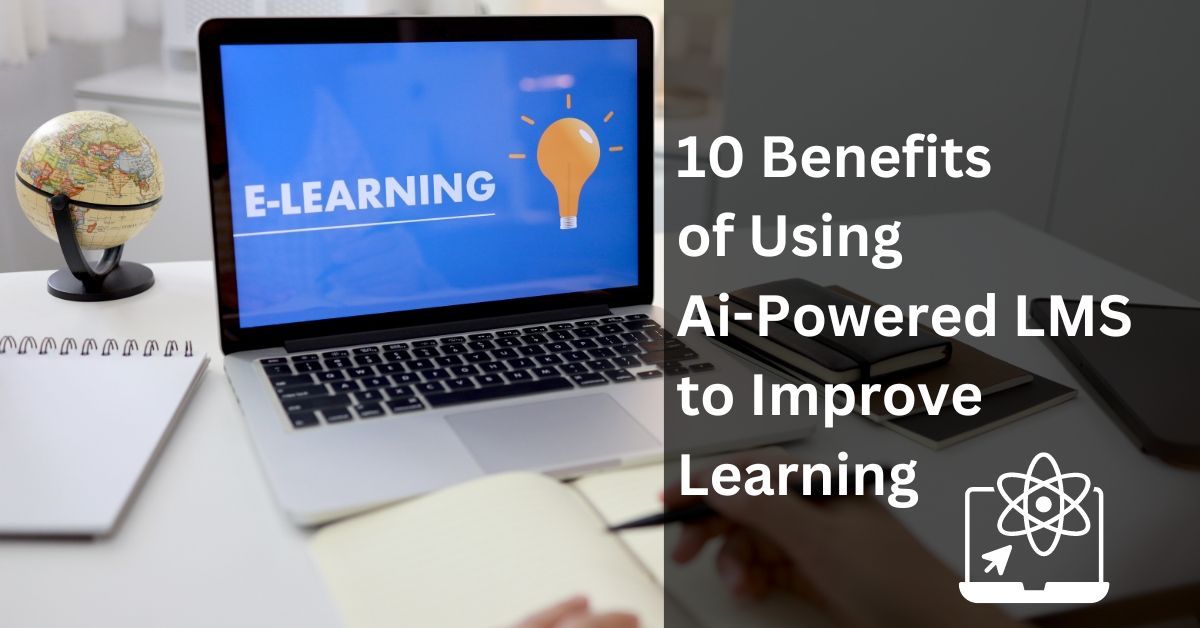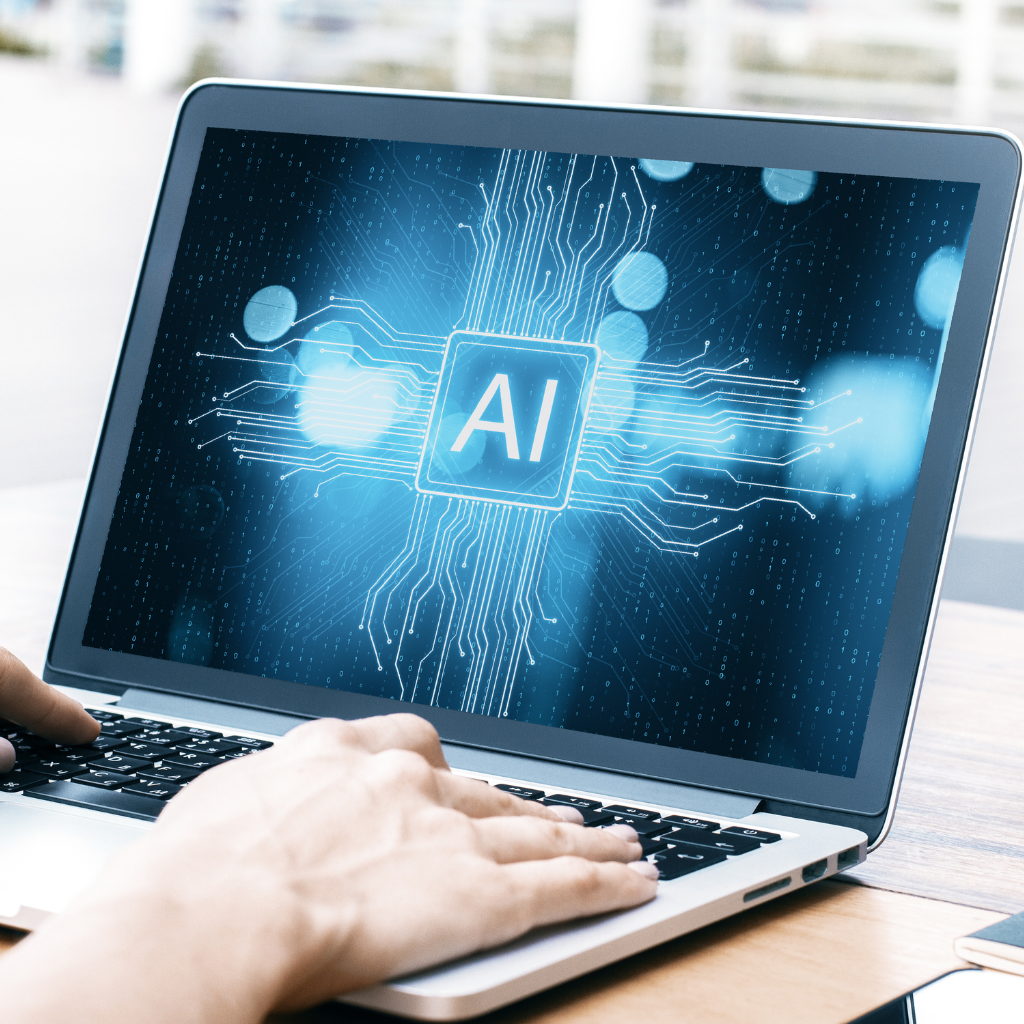10 Benefits of Using AI-Powered LMS to Improve Learning

In the rapidly evolving landscape of education, Learning Management Systems (LMS) have become indispensable tools for delivering, tracking, and managing educational content. With the advent of Artificial Intelligence (AI), these systems have transformed from simple repositories of information into dynamic and intelligent platforms that enhance the learning experience.
What is AI-Powered Learning Management Systems?
AI-Powered Learning Management Systems (LMS) are advanced educational platforms that leverage Artificial Intelligence to enhance the delivery, management, and personalization of learning content. These systems use AI algorithms to analyze learner data, providing personalized learning paths, real-time feedback, and intelligent tutoring.
They automate administrative tasks such as grading and enrollment, offer predictive insights into student performance, and enable gamification to boost engagement. By integrating AI, these LMS can adapt to individual learning needs, optimize resource usage, and continuously improve course content, making education more efficient, inclusive, and tailored to each learner’s unique requirements.
What Are the Advantages of Using AI-Powered Learning Management Systems(LMS)?
1. Personalized Learning Experience
One of the most prominent advantages of AI-powered LMS is the ability to provide a personalized learning experience. AI algorithms analyze a learner’s interaction with the system, tracking progress and understanding learning patterns. By doing so, the system can recommend tailored content that addresses the specific needs and learning pace of each student.
2. Efficient Administrative Task
AI significantly reduces the burden of administrative tasks associated with managing an LMS. Tasks such as grading, assessing assignments, and managing course enrollments can be automated through AI. This automation not only speeds up administrative processes but also minimizes human error, allowing educators to focus more on teaching and less on paperwork.
3. Intelligent Tutoring Systems
AI-powered LMS often incorporate Intelligent Tutoring Systems (ITS) which provide real-time feedback and support to learners. These systems can mimic the one-on-one interactions of a human tutor, offering guidance, answering questions, and providing detailed explanations. ITS can adapt to the learner’s level, ensuring that they understand concepts before moving on to more advanced topics.
4. Advanced Analytics and Insights
AI facilitates the collection and analysis of vast amounts of data within an LMS. Advanced analytics can provide insights into learner behavior, engagement levels, and overall performance. Educators can use this data to identify at-risk students, understand which teaching methods are most effective, and make data-driven decisions to improve the learning experience.
5. Enhanced Engagement Through Gamification
Gamification involves incorporating game-like elements into the learning process to boost engagement and motivation. AI can enhance gamification by personalizing challenges and rewards based on individual learner profiles. This makes the learning process more interactive and enjoyable, encouraging continuous participation and effort.
6. Continuous Improvement Through Feedback
AI-powered systems can provide instantaneous feedback on assessments, helping learners understand their mistakes and learn from them. This continuous loop of feedback ensures that students can promptly address their weaknesses and improve their skills. Moreover, AI can identify common areas where learners struggle and provide additional resources or alternative explanations to aid comprehension.
7. Scalability and Accessibility
AI-powered LMS can easily scale to accommodate large numbers of users without compromising on performance. This scalability is crucial for institutions with a growing number of students. Additionally, AI can enhance accessibility by providing features such as language translation, text-to-speech, and speech-to-text, making learning more inclusive for students with diverse needs and backgrounds.
8. Predictive Modeling for Student Success
AI’s predictive capabilities allow educators to foresee potential challenges that students may face. By analyzing various factors such as engagement, attendance, and performance metrics, AI can predict which students are at risk of falling behind or dropping out. Educators can then intervene early with tailored support and resources to help these students succeed.
9. Resource Optimization
AI can help educational institutions optimize their resources effectively. By analyzing usage patterns and other data, AI can recommend the best times for scheduling courses, the optimal class sizes, and the most efficient use of facilities. This optimization ensures that resources are utilized to their fullest potential, reducing wastage and improving the overall efficiency of the institution.
10. Continuous Course Improvement
AI-powered LMS systems can gather feedback from students on course content and delivery. This feedback can be analyzed to identify areas of improvement in the course material and teaching methods. Continuous course improvement ensures that the curriculum remains relevant, up-to-date, and effective in meeting the learning objectives.
In Conclusion
The integration of AI into Learning Management Systems marks a significant advancement in the field of education. From personalized learning experiences and efficient administrative tasks to predictive modeling and continuous course improvement, AI-powered LMS offer a multitude of advantages that enhance both teaching and learning. By choosing the best lms platform in London, institutions can ensure they are equipped with the tools to provide an inclusive, efficient, and personalized educational experience.
Article /
10 Benefits of Using AI-Powered LMS to Improve Learning
Realted Article


You Might Also Like This









